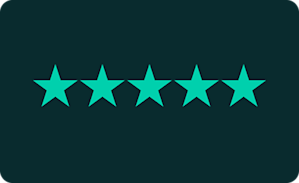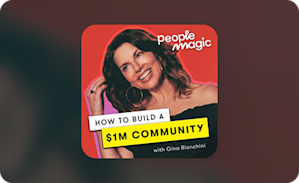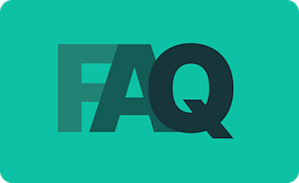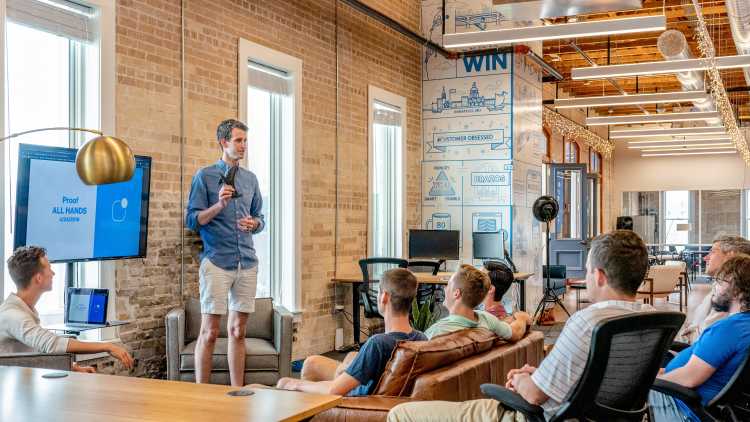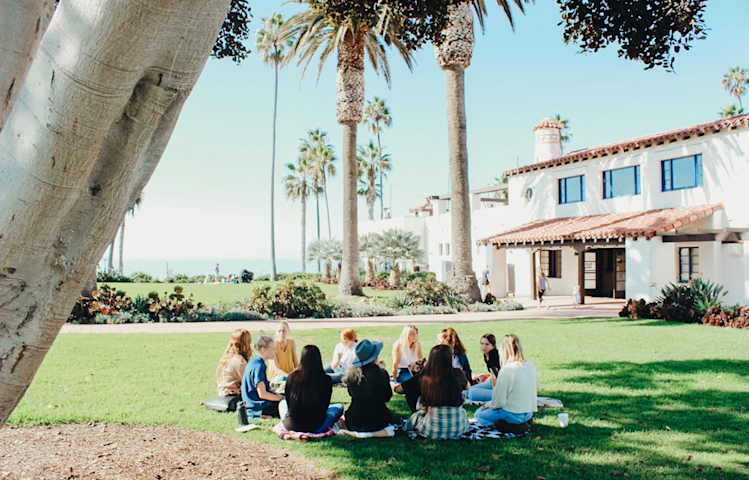Communities & Memberships
7 Ways Facebook Groups Kill Premium Membership Sites
Leaving behind Facebook Groups might just be the fastest way to get more paying members into your online community.
Author
Mighty Team
Last Updated
February 6, 2025
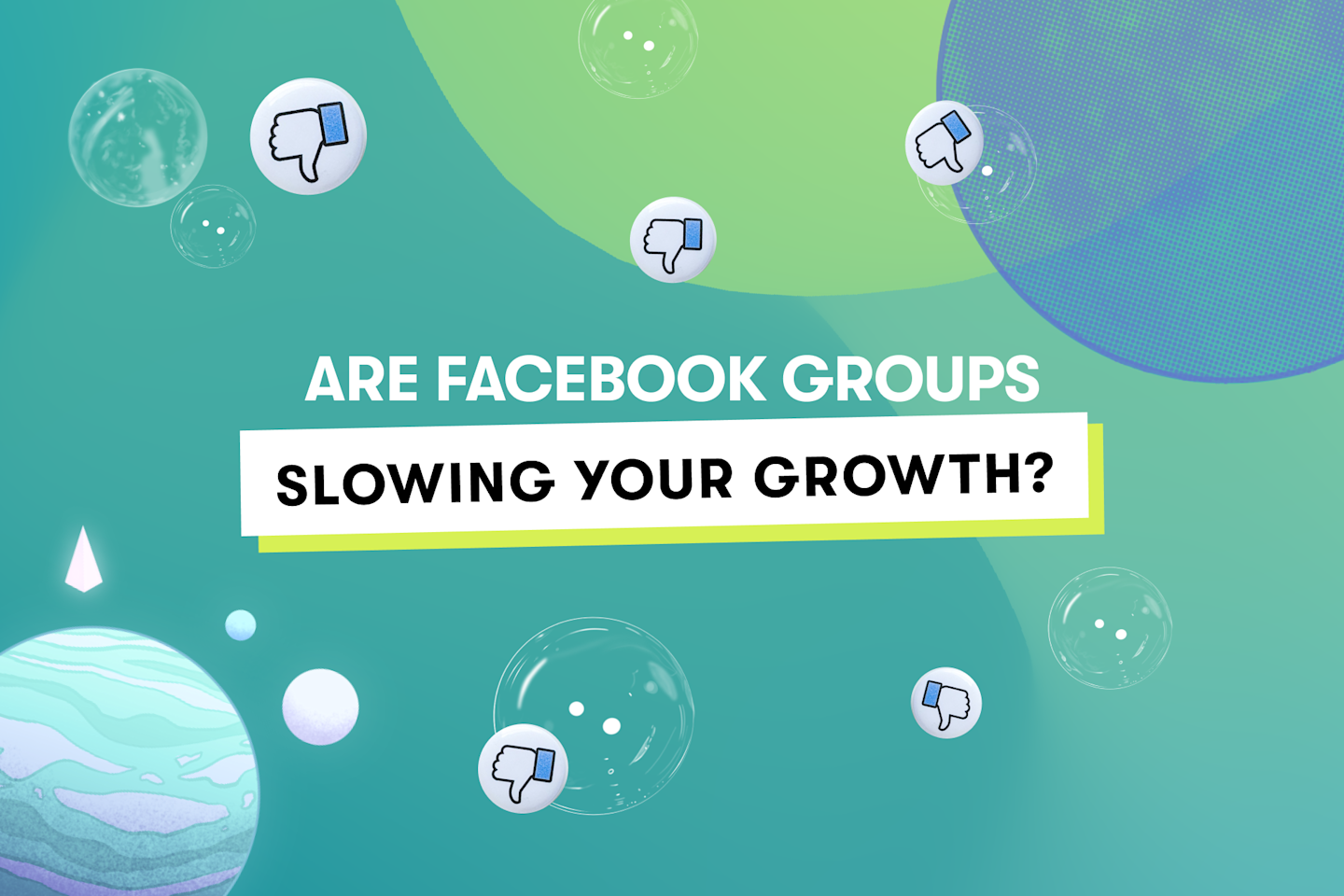
Table of Contents
At Mighty Pro, we talk to entrepreneurs every day who are frustrated with running challenge groups and paid communities with Facebook Groups.
While Facebook helped to get them started on their community journey, it has predictable growth restraints including dwindling organic reach, a clunky experience when you’re offering courses and an online community together, random shadow banning and admin lock-outs, and a lack of automation and integrations.
Here are the most common reasons why entrepreneurs ditch Facebook and move their groups into their own branded apps.
1. No organic reach
The most common argument for using Facebook Groups is that you get free organic discovery by hosting your community on a platform people use. While Facebook invested a lot in getting people to join Groups in the past, the company has now shifted its focus to other growth strategies including chasing TikTok with short-form videos and the metaverse.
As a result, Facebook Groups are less important to the company which means Groups are not getting the same priority in people’s feeds. We’re hearing reports from large Facebook Groups that organic reach is getting worse over time.
In a recent episode of the Membership Geeks, founders Mike and Callie revisited an age-old question that community managers love to debate: should you build your paid membership with Facebook Groups or in a community management platform?
“Even with all of the awesome features Facebook has been adding, the fact that it’s now harder than ever to reach the people in your group makes it a huge issue for me. In a group of 19,000, less than 10% of members will see your group’s posts these days which is terrible,” said Callie.
For Callie, this cancels out the primary benefit of Facebook Groups. With restricted organic reach and algorithms deciding which posts your members see, you’re not getting much extra discovery or added convenience for your members by using Facebook Groups.
“The fact that Facebook can determine that a post from a new member isn’t worthy of being seen because Facebook’s algorithm decided that it wasn’t worthy of being put in front of people, that to me is a dealbreaker,” says Mike.
2. Lockouts, shadowbans, and blocking
One entrepreneur we worked with saw her coaching business grow from $1.5 million to $2.2 million after closing her Facebook Groups. She had been shadow-banned and suffered continual lockouts.
Lockouts impact every type of Facebook Group. For example, we heard from a very popular inspirational celebrity (a household name and loved by millions) that their team was locked out minutes before going live in front of thousands of students. This celebrity’s content is not controversial in any way.
Most reasons for being locked out are errors by the algorithm or overly sensitive triggers for anything resembling financial, political content, or health advice.
For a real-world look at a membership business owner who ditched Facebook Groups, we interviewed the fitness coach Cristy "Code Red" Nickel.
Cristy is a badass multimillion-dollar business owner and former retired boxer who was completely OVER using Facebook Groups and ClickFunnels.
She told us, "My clients weren't having good results with all the algorithms, ads, and getting constantly locked out of our accounts. Every single day was strain and stress."
Cristy's team used six different platforms to run their courses, group coaching, and host their digital products and video content. And the core tools they used to deliver their coaching and community programs—ClickFunnels and Facebook Groups—kept failing.
Finally, Cristy ditched Facebook and launched her own custom apps with Mighty Pro.
“Our revenue is going up and up and up,” she says. And members now have “one app, one platform, one community” to achieve their fitness goals with unmatched access to Cristy's inspiring livestreams, nutrition plans, and fitness coaching.
In this 2-minute video, she shares her journey to Mighty Pro. Cristy is so fiery and full of energy, it's well worth the watch.
3. Other groups steal your members
Members are now getting ads on the sidebars of Facebook Groups.
While there are no ads in the main feed of your Facebook Group, your members will get prompts to join similar groups which mean Facebook is actively distracting your members, luring them away with other exciting groups to join.
If you’re running a paid community, this is a huge drain on member retention.
And if you’re trying to create a branded community for customers to gather, getting ads to check out your competitors or prompts to join similar groups hosted by your competitors is obviously not ideal!
Plus, all the work you’ve done in creating an online community can be leveraged by your competitors, with them running ads to members of your group. The same goes for LinkedIn Groups as competitors can run ads targeting members of specific groups.
4. Facebook Groups feel cheap
For premium memberships, every detail is a signal to your audience. The perception of value comes from your branding, the rigor of your application process, and how you actually deliver your community, content, and courses.
The key problem with Facebook Groups is the context: you’re selling access to an elite program or exclusive professional community. And then delivering that experience in a human swamp, filled with political content, competitor advertising, and endless advertising.
As Mike Morrison, founder of the Membership Geeks, put it, “Paid ads being shown in a paid community, it’s just cheap. People paid for it, they shouldn’t see ads.”
5. Splitting community and courses
If you’re offering your online courses in Kajabi and your community in Facebook Groups, you’re asking members to switch between two places. They need to log in to your course platform. Then if they have a question about the content, they need to ask a question in the Facebook Community, and then remember to go back to see if anyone answered their question.
Most people are trying to spend less time on Facebook, not more. The reason why Facebook has been so bullish on getting people to join Facebook Groups is exactly that: your group is a way to get them to log back into the Facebook app.
If you’ve built a successful community, you might be the ONLY reason why people are logging into Facebook, which cancels out the argument that you need to build a community on Facebook to reach people where they live online.
A better solution is to create a white-labeled app for your community. That way, every time they log in, every time they tap your logo to access a course, every time they ask a question and get a fantastic response from your community, you’re building your brand, not driving feed visits for Facebook.
As one head of community told us, “Having a branded app gives our members a sense of belonging. It’s easily identifiable and has elevated our member experience. It’s definitely increased our credibility in the industry. We're no longer just a group on Facebook. We are the platform. We are THE place for our industry to gather and learn from each other.”
And while it might seem like accessing your community on Facebook is more convenient, members still need to find your community in the Facebook app, plus not get lost on the way in by seeing a post from a friend or breaking news.
Plus, with your own branded apps, you can remind people to finish their course, attend a livestream, or see answers to their questions with branded mobile notifications. If people are paying for their membership, these notifications are valuable and welcome.
6. Hard to deliver results
Facebook Groups are better suited to more consumer groups such as local meet-ups and informal connection communities. If you’re trying to offer serious learning, hosting your group in an online community management platform delivers a much more focused and professional experience.
With a community management platform, you can offer things like cohort-based learning where a group of serious members join for an eight-week program. Or you can build immersive learning experiences with weekly livestreams, a community dedicated to a specific topic or course, group coaching calls, and member networking calls. And you can host everything in one place: your courses, your community, your networking events, your coaching calls, your content libraries, your premium groups, and other products members can buy.
It’s impossible to deliver an environment where members can focus and truly learn from each other through Facebook Groups.
This limits your pricing power as well. You can get away with charging $20 per month for a paid Facebook Group—but if you bring that experience into a branded app and customized web platform, you can build a premium and high-ticket membership, charging $1,000 for a basic yearly membership and +$3,000 for your more advanced offerings.
7. No automations or integrations
Facebook is a walled garden. They want to keep people in the app. And therefore limit the integration of any data or administration tasks with third party tools.
For a membership site owner, this create massive headaches, especially if you’re trying to build a world-class onboarding experience. It also makes it tough to manage renewals and cancellations as you need to manually validate that only current members have access to your paid Facebook Group.
A community management platform is designed to help you with administrative tasks.
You can integrate member flows with your email systems, helping you create incredible onboarding experiences for new members.
You can sync activity in your community with your CRM. And automate renewals, upsells, and cancellation flows.
And you can use SSO to integrate your community login with your website or other online corporate credentials. Plus, you can export member data and analyze how new courses or shifts in your content strategy are lifting membership numbers.
There is a better way...
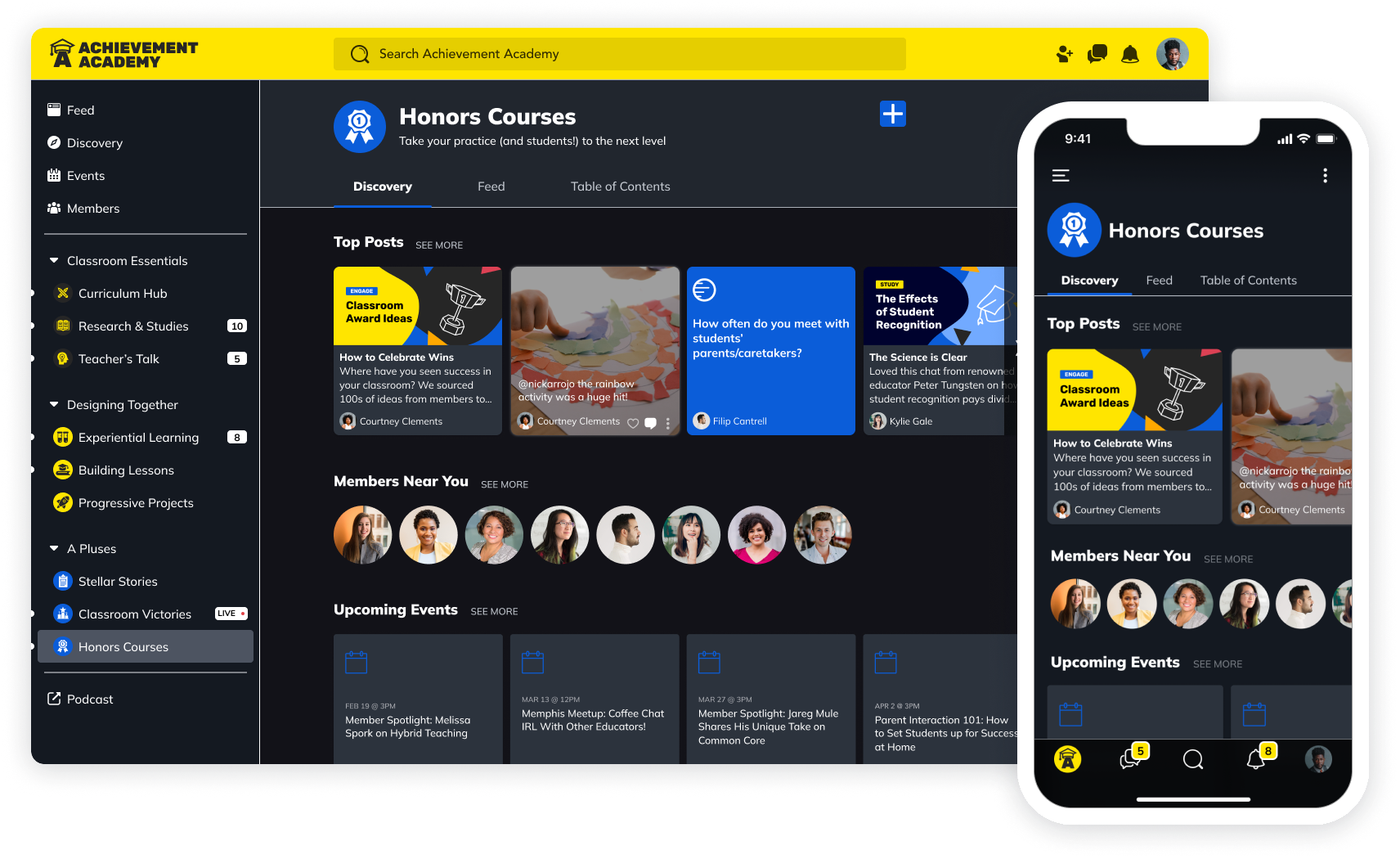
If you're looking for a place to build a premium membership community that fixes all the problems above, come build with Mighty. We help you bring courses, content, community, and commerce together in one place, with a powerful white-label platform and apps that blows Facebook Groups out of the water. And our flexible Spaces let you add in live streaming, live events, courses, member profiles, discussions, content, and more!
Give your members a premium experience in a premium group.
Schedule a call with us and we’ll show you what you can do!
Ready to start building your community?
Start a free 14-day trial to explore Mighty—no credit card required.
More like this
Join Mighty Community
Learn the principles of Community Design™ (and see them in action) alongside thousands of creators and entrepreneurs. It's free to join!

Online Courses
Creating a Course
Teaching a Course
Course Platforms
Selling a Course
Communities & Memberships
Community Platforms
Managing a Community
Building a Community
Growing a Community
Monetizing a Community
Content Creation
Creators & Entrepreneurs
Monetization
Content Creation
Starting a Business
Website Builders
Creating & Managing a Website
Events
Event Platforms
Hosting & Marketing Events
Branded Apps
Creating a Mobile App
Coaching Apps
Community Apps
Coaching
Mastermind Groups
Starting a Coaching Business
Coaching Platforms
Filter by Category
Online Courses
Communities & Memberships
Creators & Entrepreneurs
Events
Branded Apps
Coaching
Build a $1 Million Community
This free masterclass went viral—sign up to learn why.

